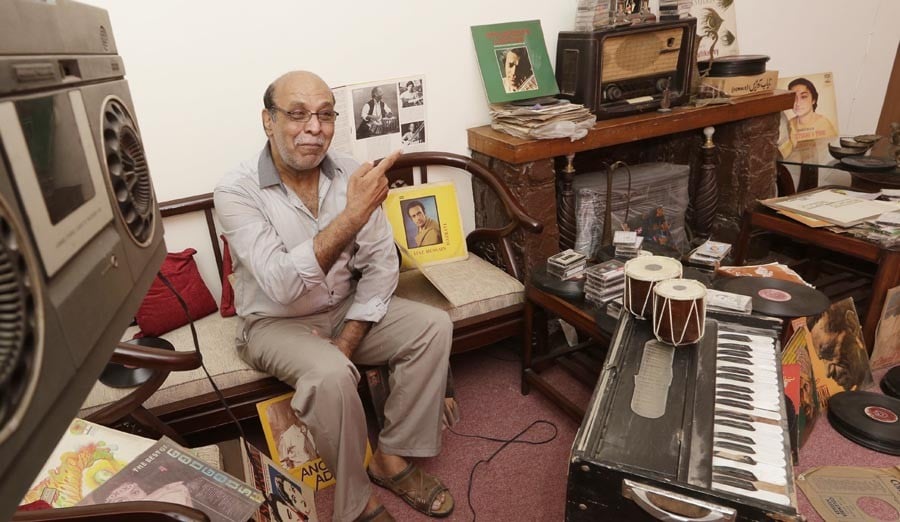
Academic turned poet Salimur Rehman is a rare collector of gramophone records

Salimur Rehman retired recently as an associate professor at a local college, where he taught Urdu literature for more than three decades. He also writes verses, short stories, and critical essays, and has published five books till date, two of which are on music. And that is precisely what this feature is all about.
By his own admission, Rehman is "an avid collector of gramophone records," mostly of 78 RPM variety.
His eyes perk up as he starts talking about the ‘gems’ in his collection: "I may not have the largest collection of records, but I definitely have some of the rarest pieces ever produced." Tamancha Jaan, Khurshid Bai Hujru Wali, Inayat Bai Dhero Wali, Ustad Abdul Karim Khan (who mentored Roshan Ara Begum), Ustad Fayyaz Khan, Pyaray Saab, Gohar Jan Kalkatty Wali and Zohra Bai Agray Wali are some of the top notch classical singers who feature in the records. Other artistes include Hira Bai Barodkar, Pandit Omkar Nath Thakur, Kamala Jharia, and Deepali Nag.
"A lot of these artistes have long been forgotten," he says with regret, before he introduces to me singer Bahar who was "better known as Baharo Machine!" He laughs. "Well, because she could sing for hours on end, without going wrong with a single note."
Rehman also speaks of Khurshid Bai Hujru Wali and how she once rendered Allama Iqbal’s famous nazm ‘Shikwa’ in front of the legendary poet himself.
The music genres are also worth a mention. You can find classical, semi-classical, film and non-film. Most of the numbers are Punjabi- or Urdu-language, though he has a few records with Arabic and Persian music, too.
Salimur Rehman inherited the passion for music from his father Sheikh Abdul Rehman who was an Auqaf official secretly harbouring great musical instincts. No wonder, Rehman junior grew up playing tabla, sitar, and flute.
There was a faint desire in him to sing also, something he suppressed ‘successfully’, thinking he was "bay sura." But then he couldn’t help frequenting Radio Pakistan, Lahore, and the place became an integral part of the later years of his life.
"While I was a student, I used to participate in different radio programmes. Later, I worked as an announcer and broadcaster also," he says.
Radio afforded him exposure to a vast array of musicians, and he became friends with many of them. Here, he also interviewed singers and musicians like Malika Pukhraj, Munawwar Sultana, Nazeer Begum, Khurshid Begum, Islam Shah, and Israr Ahmad. He intends to compile a book out of these writings soon.
It was sometime in 1986 when he bought his first set of 78 RMP records. He says he has invested a lot of money on his hobby, collecting records not only from Pakistan but also from India through his friends. It’s been one giant task, he admits. Tougher still, maintaining the collection: "You’ve to save the software from damage as well as moisture, excessive heat and dust. It’s quite a job, I tell you!"
So how does he manage? "The records are cleaned regularly. Most of these I’ve shifted to my present home in [Lahore] Cantt, but a part of the collection is still lying in our ancestral home near McLeod Road."
He hopes to be able to put all the collection together at one place and under one roof. But "this requires more physical space than what I have at the moment, because I share my house with my siblings.
Sadly, none of Rehman’s children shares his passion. So, he is mulling donating the entire collection to some national institution of archives.